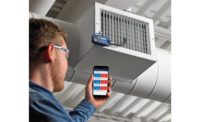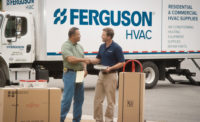Because of the amount of people buying foreclosed homes, HVAC contractors are presented with a great opportunity to sell replacement equipment, replacement ductwork, and maintenance contracts. The power to foreclosed homes is typically turned off, leaving the homes susceptible to uncontrolled leaks, burst pipes, mold, and broken or stolen sump pumps, dehumidifiers, and condensers. Because home inspectors can usually only perform a visual inspection, real estate agents are turning to HVAC contractors for input.
One in every 605 housing units received a foreclosure filing in May 2011, according to Realty Trac, a company that documents U.S. foreclosure cases. Realty Trac also reported that as of July 2011, the number of foreclosed homes nationwide exceeds 1.6 million.
Foreclosed homes seized by banks can be especially attractive to potential home buyers because of the low price tag. And, due to government initiatives such as the Federal Housing Administration’s (FHA) Section 203(k) program, foreclosed homes are being made even more affordable. This FHA program permits homebuyers to finance up to an additional $35,000 into their mortgage to improve or upgrade their home before move-in.
INSPECTING FORECLOSED HOMES
Buyers who are looking at foreclosed homes should thoroughly investigate the property before any purchasing decisions are made. At this stage of the decision process, HVAC contractors are a great resource because they can help real estate agents evaluate ventilation, air infiltration, and the general indoor air quality of the home.
BECOMING EDUCATED ABOUT MOLD
With a multitude of articles available about the dangers of mold, home buyers are becoming well-educated on the subject, and know that poor indoor air quality is a contributing factor to mold growth.
CEO Jeff Dudan of AdvantaClean, a national mold remediation franchise corporation, warned potential home buyers: “There could be mold growing behind walls and underneath floors, but you can’t always see, smell or touch it. Once mold takes hold, it’s really tough to prevent it from spreading. The new buyer could spend thousands of dollars on mold remediation, an unexpected expense that can turn that bargain dream into a nightmare.”
Trying to figure out what those expenses might be is a common concern for new homeowners. At MoldBlogger.com, an online blog that fields mold-related questions from homeowners, there is an article about “Mold Removal Cost – What You Can Expect to Pay.” MoldBlogger’s response to the homeowners’ question of how much they can expect to pay for mold remediation is that the remediation cost of a crawlspace can really vary.
According to the site, “It could average as little as $500 or as much as $4,000. If the attic and wall ducts are involved, the cost for those generally ranges from $2,000 to $6,000. If your home has been flooded and the mold is all throughout it, there is much more that has to be done. This could drive your remediation cost up to $10,000 to $30,000 – and it could even go higher, depending on the size of your home.”
AdvantaClean’s Dudan added that it is a good idea to bring in a mold specialist to perform an inspection before any decisions are made.
FORMING RELATIONSHIPS
Because the cost of mold remediation can be so high, homeowners want to make sure that they’re doing business with someone that they can trust. Because of this, it’s important for HVAC contractors to develop inter-industry relationships with real estate agents and other professionals connected to the homeowner.
These relationships can become great sources for referrals and recommendations, so it’s smart for HVAC contractors to align themselves with people that can help generate leads — mold specialists, air duct cleaners, water extraction experts, etc.
Indoor air quality and mold go hand-in-hand, so foreclosed homes provide an excellent opportunity for relationships to cultivate between HVAC contractors, mold specialists, and air duct cleaners. When a mold specialist or air duct cleaner is called into a residential home for an inspection or estimate, he or she might notice that the root of the problem is the home’s air circulation. An HVAC contractor having a positive relationship with the professional at the jobsite increases the chances of that HVAC contractor being called in.
The bottom line for HVAC contractors is that right now there are excellent opportunities in the foreclosed home market. Contractors should take time to develop relationships with other professionals in the industry because referrals are everything.








